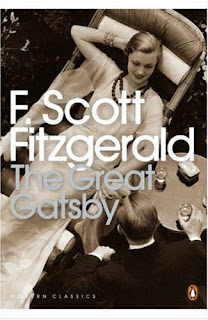The Great Gatsby was an interesting read and is amongst books collected in the genre of Classics. It takes place during the roaring 1920s in the United States and describes life in the eastern part of the country, close to New York. The novel centers around a character named Nick Carraway who travels from the West to live in the Eastern States and try his hand at stocks. His time in the East centers around his neighbour – a man by the name of Jay Gatsby who entertains wild parties in his mansion. During the story, Carraway develops a friendship with Gatsby that is sometimes uncomfortable, always more going on than what appears on the surface. However, Carraway also develops a soft spot for Gatsby – there’s something about the way this man hopes and loves that strikes Carraway.
One of my favourite quotes about this book comes from a favourite book of mine called, “A Girls Guide to Hunting and Fishing”. In it, the main character is a teenage girl who loves to read books that aren’t suitable for her age and she is given a copy of “The Great Gatsby”. Inside is inscribed, “This seemed inappropriate...”. Haha, that made me chuckle and it is, but, haha, it’s a great book on a quite intriguing time in America’s history.
If you’re interested in discovering hidden meanings in the book, it’s quite intriguing to do a little bit of research on this book as well. There are quite a few symbols used in this book to illustrate hope and sadness and it will add to the epic-ness of this novel for any interested reader. I read this novel for my university assignments and really loved it. It’s a short read and perfect for a long journey via plane, train or automobile. Give it a try and learn a little about the life of the American rich and famous in the 1920s.





